A bit of culture...
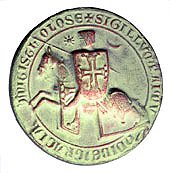 If you have been here before, than you probably already know that this part of France is quite different from the centre and the north. The French language is influenced by dialects. The pronounciation is softer, and sometimes sounds a bit Spanish. This is because of its history. The south of France and especially the Roussillon was Spanish until the late 17th century.
If you have been here before, than you probably already know that this part of France is quite different from the centre and the north. The French language is influenced by dialects. The pronounciation is softer, and sometimes sounds a bit Spanish. This is because of its history. The south of France and especially the Roussillon was Spanish until the late 17th century.In ancient times, the Phoenicians created several ports and colonies, and later on also the Romans introduced their culture. They built the first roads and built stone cities. When times were bad in the Near East, hundreds and even thousands of people fled to Occitania. This resulted in a mixed population, among whom also scholars, scientists and mystics. In Medieval times, the Languedoc-Roussillon was one of the richest cultural areas of Europe. And some say that the Knights Templar were set on making Occitania their country, free from royal or papal power.
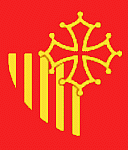 Here in the south the population was mixed. Several religions lived side by side without any problems, and if there had not been a Moorish, Frankish or Catholic threat, Occitania might have still been a unique European country. But it was not meant to be. The country that was ruled by the Visigoths who were Arian Christians and not Catholic, was conquered by the Moors in the early 8th century.
Within a few decennia, the Frankish catholic troops reconquered the area, after which it fell to the French crown (Charlemain period). However, the area was given to feudal lords under Carolingian rule. But not all areas were annexed. The Roussillon was still part of the Catalan empire, and it kept its own identity until well into the 17th century. Even today the atmosphere in the area, now called the Pyrénées Orientales, is unmistakenly Catalan.
Here in the south the population was mixed. Several religions lived side by side without any problems, and if there had not been a Moorish, Frankish or Catholic threat, Occitania might have still been a unique European country. But it was not meant to be. The country that was ruled by the Visigoths who were Arian Christians and not Catholic, was conquered by the Moors in the early 8th century.
Within a few decennia, the Frankish catholic troops reconquered the area, after which it fell to the French crown (Charlemain period). However, the area was given to feudal lords under Carolingian rule. But not all areas were annexed. The Roussillon was still part of the Catalan empire, and it kept its own identity until well into the 17th century. Even today the atmosphere in the area, now called the Pyrénées Orientales, is unmistakenly Catalan.
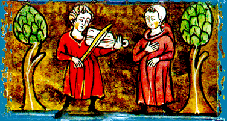 The Troubadours, who sang their songs of love in the Occitan language, the language of the south, also sang songs about politics and news travelled with them. Occitan is a mix of French, Spanish, Portugese and a bit of Latin, and it was 'born' in the days of the Visigoth empire, who needed a language everybody could understand at least a little. It was spread all over the place thanks to the Troubadours, and could not be understood by those who spoke the Langue d'Oeil, the language spoken in the north. The Langue d'Oeil, however, became the basis of modern French, which was only spoken in all French regions since the 19th century. In the south there is renewed interest to keep the Occitan language alive. It is sometimes taught at school and there are special courses for those who are interested to learn. More and more road signs are both in French and Occitan.
The Troubadours, who sang their songs of love in the Occitan language, the language of the south, also sang songs about politics and news travelled with them. Occitan is a mix of French, Spanish, Portugese and a bit of Latin, and it was 'born' in the days of the Visigoth empire, who needed a language everybody could understand at least a little. It was spread all over the place thanks to the Troubadours, and could not be understood by those who spoke the Langue d'Oeil, the language spoken in the north. The Langue d'Oeil, however, became the basis of modern French, which was only spoken in all French regions since the 19th century. In the south there is renewed interest to keep the Occitan language alive. It is sometimes taught at school and there are special courses for those who are interested to learn. More and more road signs are both in French and Occitan. 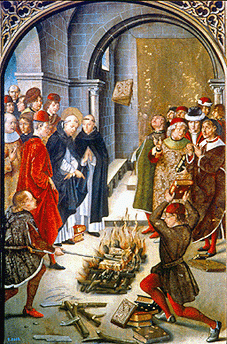 The Occitan language also had a function. The nothern French lords, who visited the courts of the southern Lords of Occitania, could hear the Troubadours sing about politics and could not hear the criticism, because they could not understand the language. Without knowing, they were made fun off or criticised in their presence. There was, however, a very bad relationship between the north (Paris) and the south (where the Occitan Feudal Lords ruled). There was envie among the nothern nobility because there was so much wealth and knowledge in the south. Even the French kings were envious, but at the same time, the catholic popes became scared. Because the south was full of gnostisc Christians, Cathars, and they refused to become catholics, and refused to pay Rome. They were afraid of the knowledge of these 'heretics', and afraid that the popularity of these gnostic Christians could damage the power of the Catholic Church. And so, for hundreds of years, books and people ended up in the fire.
The Occitan language also had a function. The nothern French lords, who visited the courts of the southern Lords of Occitania, could hear the Troubadours sing about politics and could not hear the criticism, because they could not understand the language. Without knowing, they were made fun off or criticised in their presence. There was, however, a very bad relationship between the north (Paris) and the south (where the Occitan Feudal Lords ruled). There was envie among the nothern nobility because there was so much wealth and knowledge in the south. Even the French kings were envious, but at the same time, the catholic popes became scared. Because the south was full of gnostisc Christians, Cathars, and they refused to become catholics, and refused to pay Rome. They were afraid of the knowledge of these 'heretics', and afraid that the popularity of these gnostic Christians could damage the power of the Catholic Church. And so, for hundreds of years, books and people ended up in the fire.This happened in the early 13th century, when the French finally attacked the southern lords and their cities and annexed Occitania (all but the Roussillon and the Provence) to the French crown after the Second Cathar Crusade. The 13th century was one of horrors. A terrible rule of the Inquisition, who seemed to enjoy torture and burning people of all ages or sexes alive.
In 1309 the popes came to the Provence and the Roman Catholic Church was ruled from the papal palace in Avignon in the Provence. In 1480, after the death of count René d'Anjou, the Provence was annexed to France. Avignon itself always remained a papal state until the French annexation in 1791.
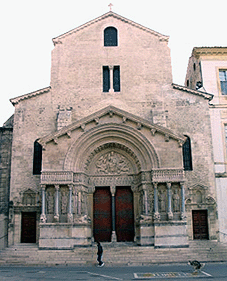 When you enjoy architecture, you will enjoy the south. The Christian world used the Roman basilica as a basis for all monasteries and episcopal churches. The Provence was christianised in an early stage and together with the archbisdoms of Arles and Avignon, it formed a suitable basis to spread Christianity to the rest of France. The Roman architecture was developed in the early 10th century. The basilica was its central point.
When you enjoy architecture, you will enjoy the south. The Christian world used the Roman basilica as a basis for all monasteries and episcopal churches. The Provence was christianised in an early stage and together with the archbisdoms of Arles and Avignon, it formed a suitable basis to spread Christianity to the rest of France. The Roman architecture was developed in the early 10th century. The basilica was its central point.The Roman architecture has founded three regional schools: Normandy, Burgundy and Provence. They did copy ancient building techniques, the St. Triomphe in Arles is a good example of this. The victory over the Cathars also brought with it an urge to build as many catholic churches, abbeys and monasteries as possible. The bigger the better. Albi is a good example of building a huge church on the spot where the old Albigenser (Cathar) headquarters used to be. It was all built to show the people the power of the Catholic Church and, of course, to keep an eye on them. During the Wars of Religion, many of these buildings were destroyed, although several were rebuilt in the 17th century.
In the 17th century, when the Treaty of the Pyrenees was signed, the French part of Catalunya was annexed to France. Now the old Spanish realm of the Catalans was divided into 2 parts, a Spanish part and a French part. Because of the impressive history of this area, the inhabitants of French Catalunya still feel Catalan, and not French. It has its own southern culture, its own identity.
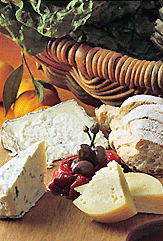 The culture in the south of France is unique. You can see it, you can smell it and you can taste it. Nature, animals, smells and herbs, they all play a significant part in the Occitan kitchen. Every area has its own special dishes, its own ways of cooking and serving, its own taste of meat or fish and its own salades. But one thing is the same where ever you go. Everyone takes his time to cook food, and takes his time to eat it.
The culture in the south of France is unique. You can see it, you can smell it and you can taste it. Nature, animals, smells and herbs, they all play a significant part in the Occitan kitchen. Every area has its own special dishes, its own ways of cooking and serving, its own taste of meat or fish and its own salades. But one thing is the same where ever you go. Everyone takes his time to cook food, and takes his time to eat it.
Having lunch or dinner can take hours, even in a restaurant outside the big cities. The excellent wines of the Provence, the Languedoc-Roussillon or Bordeaux complete the table, and then we say nothing about the delicious cheese, which is often served as a desert.
In short, people who love culture will love this special part of France!